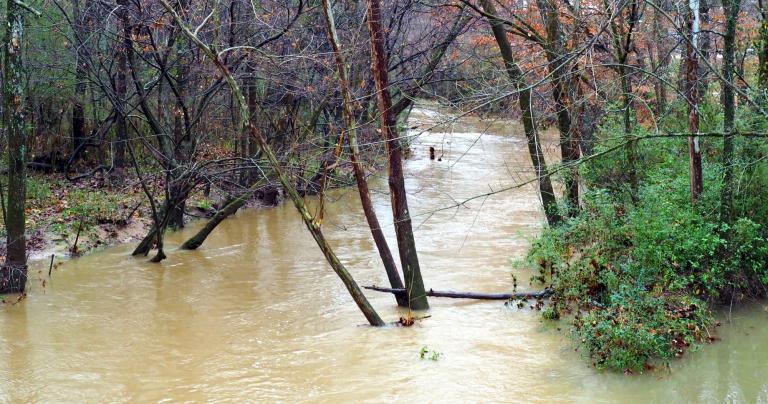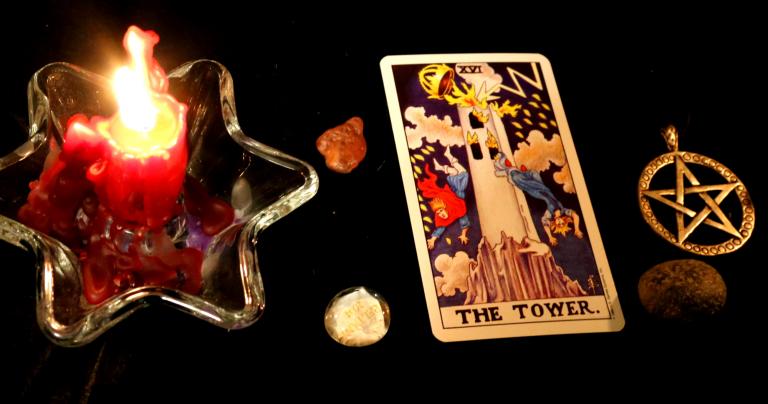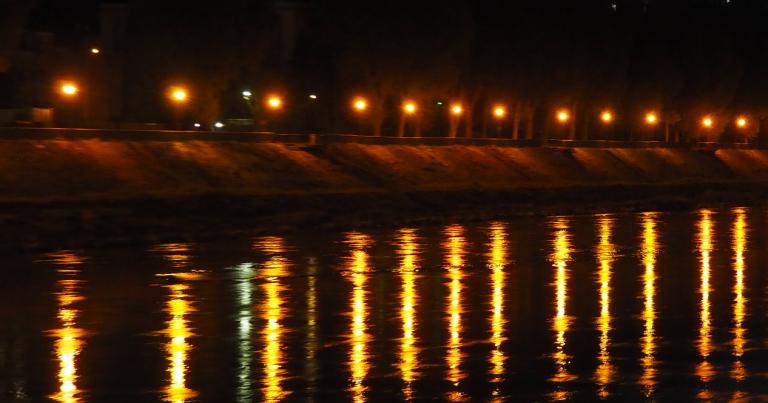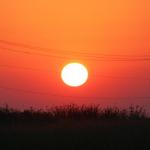I’ve written a bit lately about “The Storm” and “Tower Time” and “The Long Descent” – everyone knows what I’m talking about, right?
Right?
Such is modern language. Words get used in new ways – seemingly at random – and before long they become a part of ordinary language. Except that everybody doesn’t know what they mean. And words often have connotations and implications that aren’t necessarily accurate for their new usage. Such is the case here.
The Storm
I’m not sure where the idea of “The Storm” began. I first started hearing it around 2011 from people associated with the Morrigan. At that point it was a future event – many of us heard the Great Queen say “A storm is coming – get ready.” It was never really clear what that storm would be (the Morrigan has many virtues – transparency is not one of them), just that it would be difficult, unpleasant, and long.
In 2016 the storm arrived. In March – well before the election of Donald Trump – I wrote:
If you’re paying the least bit of attention, you can see there’s something very wrong with our world right now. If you read or watch just a bit of news, you can see that politics throughout the West has reached a level of ineptitude not seen in over a century. And if you have just a bit of magical awareness you can see that this badness extends across the Veil and into the world of spirit.
The metaphor of a storm for the changes in our environment – both this-world and Otherworldly – is useful, but it’s vague. Are we talking about a thunderstorm, a tornado, or a hurricane? Beyond that, even though storms are dangerous and sometimes fatal, they don’t last very long. A few minutes or a few days and they’re gone, and ordinary life can resume.
Nobody who’s paying attention thinks this is going to be over any time soon.
Tower Time
We know where “Tower Time” began. Byron Ballard coined the phrase to describe the end of empire and the patriarchy that supports it. It’s named for The Tower card in the Tarot, a card that foretells sudden, dramatic, and irreversible change. The false is burned away and those who built on unstable foundations are cast down, making room for something better.
But for all the advances made over the past century, the patriarchy isn’t dead and it’s making a resurgence. We hope this is simply its last desperate stand – and we’re working to insure that happens – but history reminds us that social advances can be reversed in a hurry.
Further, The Tower has apocalyptic implications: something terrible is going to happen, but once that’s done everything will all be better. Apocalyptic prophecies have a 3500 year track record of being wrong every single time.
So while Tower Time is a useful term, it doesn’t precisely describe our current situation.
The Long Descent
The Long Descent is the title of a 2008 book by former AODA Grand Archdruid John Michael Greer subtitled “A User’s Guide to the End of the Industrial Age.” Greer argues that since modern industrial society is dependent on petroleum and since petroleum will eventually run out, our society is beginning a “long descent” into a post-industrial age.
While I think we really are in a long descent, Greer’s theory has two problems. The first is that peak oil production keeps getting pushed farther and farther back. And it dismisses technological advancements that can compensate for the eventual decline in petroleum. There won’t be a seamless transition to a Star Trek future and it’s entirely possible future generations will look back with envy (and a bit of disgust) at our level of luxury, but I think it’s highly unlikely our great grandchildren will be living with 1880’s technology.
The second problem – ironic for a Druid who wrote an excellent book on polytheism – is that Greer completely ignores the impact of spiritual forces and Otherworldly persons. While many of our current difficulties have this-world, human-caused origins, others do not. We can argue about The Re-emergence of the Fair Folk vs. The Myth of Disenchantment, but many of us who have opened our magical eyes are seeing things not seen in centuries.
The Long Descent is perhaps the most accurate name for the phenomena we’re talking about. But what we’re talking about is far more than the post-petroleum speculations of John Michael Greer.
What are we talking about, anyway?
When we talk about “The Storm” or “Tower Time” or “The Long Descent” we’re referring to a series of events and phenomena that are difficult and unpleasant, but mainly that don’t fit our ideas about the world and the way it’s supposed to work. And not just one or two strange and unusual occurrences, but one after another after another.
Some of these things are clearly caused by humans. Some we’ve seen before, in history if not in our own lives. Others are novel and of indeterminate origin. Individually, any one of them can be rationalized away. Taken together, they point toward something bigger. The list includes:
- Climate change and its impact on humans and other persons
- The decline of the American empire and the extreme efforts to prolong it
- The rise of fascism, nationalism, and xenophobia
- Year-round encounters with Otherworldly persons (aka “The Shredded Veil”)
- More frequent encounters with the Fair Folk
- Gods on recruiting missions
- Divine instructions to build – in a hurry
- Increased interest in magic and witchcraft from ordinary people
- Increased intensity and frequency of magical and spiritual experiences
- and an ever-increasing number of incidents that are difficult to classify but that are best described as high strangeness
What’s the cause?
We don’t know.
Two years ago I wrote A Speculative Look at the Cycles of Magic and the Otherworld where I outlined some ideas about what might be behind all this. I suggested that what we’re experiencing is the product of multiple natural and supernatural cycles lining up at a point of increasing intensity, plus some persons in this world and in the Otherworld looking to take advantage of an opportunity most people don’t see.
I think it’s worthwhile to wonder and think and speculate about what might be causing this.
I think it’s dangerous to assume it’s any one thing or person or force.
It’s many things. Some of them are forces which are either impersonal, or so far above humans they take no notice of us. Some of them are catalysts and multipliers, which increase the rate of change simply by their presence, while remaining unaffected by the process. Many are trying to take advantage of the chaos to grab a better situation for themselves.
But since we don’t know what’s causing it, we have a hard time coming up with a suitable term for it. And so we latch on to “The Storm” or “Tower Time” or “The Long Descent” and hope everyone knows what we mean.
This will not be over soon
Some people I know and respect see everything I’m seeing and still think it’s just the ordinary ebb and flow of life. They say it’s weather, not climate – and I’m not talking about climate change deniers. I wish they were right. I wish I could be confident the storm would be over in a year or two and then we could get back to normal, or at least start building a new normal.
Then again, the Great Red Spot on the planet Jupiter is a storm that’s been going on since at least 1830 and possibly since 1665. Sometimes weather can last a long time.
Ultimately, the question of whether this situation is climate or weather is of limited value. Nothing in life is permanent – everything changes.
But the signs all point to this being a deep, long change. I do not expect anyone alive today will see it’s end, nor likely its low point.
So, what shall we call this thing we’re in the middle of?
This thing we’re in the middle of will last longer than a storm. There will be no clearing of the deck, as in The Tower card. It will be a long descent, but there’s more to it than the oil running out… and it’s not going to wait for gas to hit $6 a gallon in the United States to get started.
I’ll probably continue to call it “The Storm.” It’s what I was warned was coming and it’s what I’ve written about numerous times over the years. If you have a better name, I’d be interested in hearing it.
But I don’t think what we call it is nearly as important as the need to acknowledge its presence, study its causes, and deal with its effects.


















